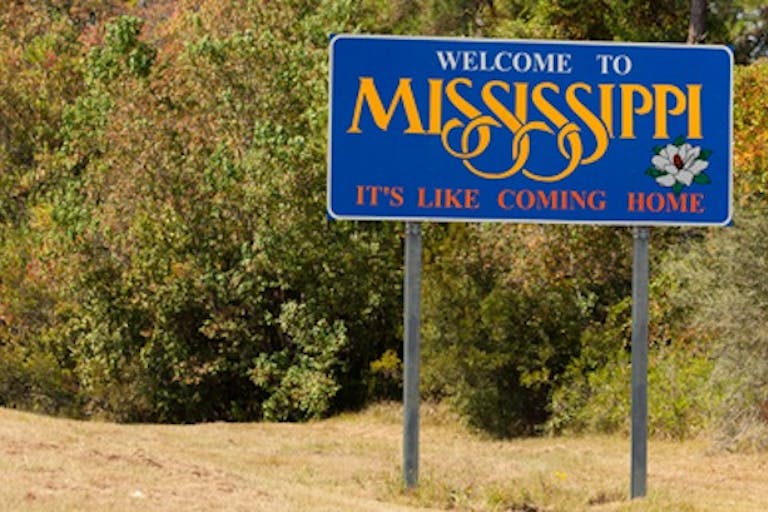
Delaware assisted suicide law takes effect after lawsuit dismissed
Bridget Sielicki
·
Issues·By Catherine Livingston, PhD
Mississippi’s restrictive abortion law lands at Supreme Court for review
A Mississippi abortion law is the latest to arrive at the Supreme Court. Mississippi has asked the high court to review the decision of a federal district court that blocked a law from going into effect; that law requires physicians performing abortions to have admitting privileges in local hospitals.
Common in many states, the law helps ensure women’s safety by assuring them of quick hospital care should something go wrong during the abortion. But abortion advocates say it’s a ploy by pro-lifers to disguise outlawing abortions in the guise of safety.
The controversy has been brewing for years. Reuters reports:
“A federal district court judge issued a temporary injunction in 2012 blocking the Mississippi law because it would have forced women seeking abortions to go out of state. The same judge issued a second injunction in 2013, which was upheld by the 5th U.S. Circuit Court of Appeals last November.
“The Mississippi Attorney General’s Office argued in its filing that the U.S. Supreme Court should weigh in on whether closing Mississippi’s sole abortion clinic places an undue burden on women seeking the procedure when it is available in adjoining states.”
A curious aspect of this argument is that some argue that because Mississippi only has one abortion clinic, it would create that undue burden on abortion-minded women to require admitting privileges of the doctors because the women would have to go to another state. In fact, that’s what the Fifth District Circuit Judge E. Grady Jolly wrote in his opinion last year. Grady said:
“Mississippi may not shift its obligation to respect the established constitutional rights of its citizens to another state. Such a proposal would not only place an undue burden on the exercise of the constitutional right, but would also disregard a state’s obligation under the principle of federalism—applicable to all fifty states—to accept the burden of the non-delegable duty of protecting the established federal constitutional rights of its own citizens.”
While laws may vary from state-to-state, it is hardly a violation of a constitutional right if a woman has to cross a state line for a medical service of any type–and be safer because of it. Mississippi, for example, is a relatively small state, and traveling into Alabama from Jackson is a shorter trip than some women make driving to one of the many abortion facilities in the large state of Texas. Yet the argument persists that admitting privilege laws in Texas may work because of the number of abortion clinics, yet it violates a woman’s right to an abortion if the state only has one clinic. This logic is flawed on many levels.
First, it could be argued that a law in a state with only one facility should actually be stricter, not more lenient. When there is only one option in an entire state, that option should be monitored carefully because, as a default, virtually all women in the state wanting an abortion will likely go there. The idea that it is somehow okay to have less restrictions because it is the only facility is a negligent one that will hurt women. A woman should be deeply bothered if she wants an abortion and there is not a single doctor who can get her admitted to a hospital if something goes wrong. Hospital admissions laws are a matter of safety, not population.
Those who advocate abortion believe that these laws are a conspiracy against them. They say they are not about safety for women, but about outlawing abortion and using any means pro-lifers can find to do it. In fact, one abortion leader actually says the high court should not take this case because it harms women. Nancy Northup, president of the Center for Reproductive Rights, said:
“The Court should decline to review the sound determination that Mississippi women would be irreparably harmed if the state were allowed to close its last clinic.”
A law protecting women’s health in the event of a complication or medical emergency, which, incidentally, can happen even with a good doctor because the body in surgery isn’t always predictable, is the safest thing of all. It’s a farce to assert that this could harm women irreparably. Abortion harms a baby–and often women–irreparably, but there is no permanent harm that comes from a woman having to cross a state line to ensure her life is protected.
While it’s no secret pro-lifers do not want abortion to be legal, it is also not a secret that women do sometimes have complications or even die as the result of seeking an abortion. Abortion may be legal, but it’s certainly not reasonable that it be an unregulated fringe of medicine. The irony of the abortion industry is that they claim to be about “women’s health” when their opposition to laws that protect health is stronger than their need to truly ensure a woman’s care and safety.
The state of Mississippi, as well as many pro-lifers nationwide, are hopeful that the Supreme Court will see the need to address this and agree to review the case and the decisions the courts have made to place an injunction on the law.
Live Action News is pro-life news and commentary from a pro-life perspective.
Contact editor@liveaction.org for questions, corrections, or if you are seeking permission to reprint any Live Action News content.
Guest Articles: To submit a guest article to Live Action News, email editor@liveaction.org with an attached Word document of 800-1000 words. Please also attach any photos relevant to your submission if applicable. If your submission is accepted for publication, you will be notified within three weeks. Guest articles are not compensated (see our Open License Agreement). Thank you for your interest in Live Action News!

Bridget Sielicki
·
Politics
Bridget Sielicki
·
Issues
Nancy Flanders
·
Issues
Bridget Sielicki
·
Issues
Angeline Tan
·
Issues
Nancy Flanders
·
Human Interest
Catherine Livingston, PhD
·
International
Catherine Livingston, PhD
·
Newsbreak
Catherine Livingston, PhD
·
Human Interest
Catherine Livingston, PhD
·
Human Interest
Catherine Livingston, PhD
·